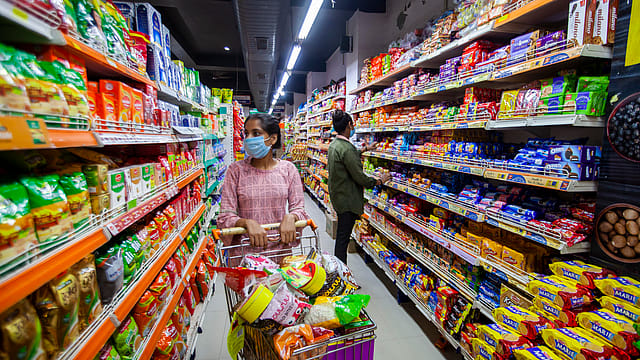Wholesale inflation eases to 3-month low of 2.04% in July
ADVERTISEMENT

India’s wholesale inflation in July eased to a three-month low of 2.04%, according to data released by the ministry of commerce and industry.
The positive rate of inflation is primarily due to increase in prices of food articles, manufacture of food products, mineral oils, crude petroleum & natural gas, other manufacturing etc.
Wholesale price index inflation stood at 3.36% in June and 2.74% in May. The month over month change in WPI index for the month of July, 2024 stood at 0.84% as compared to June, 2024.
This comes days after India’s retail inflation hit its lowest rate in nearly five years at 3.54% in July. Rural inflation stood at 4.10%, while urban areas recorded an inflation rate of 2.98%.
Food inflation in July 2024 dropped to 5.42%, its lowest level since June 2023, down sharply from 11.51% a year ago and 9.36% in June. Rural and urban areas recorded corresponding inflation rates of 5.89% and 4.63%, respectively. Significant declines were observed in the prices of vegetables, fruits, and spices across all groups during the month.
In July 2024, inflation in the food and beverages basket stood at 5.06%, down from 8.36% in June but still higher than the overall headline inflation rate. Pulses saw the highest inflation at 14.77%, followed by cereals at 8.14%, vegetables at 6.83%, eggs at 6.76%, and meat and fish at 5.97%.
January 2026
Netflix, which has been in India for a decade, has successfully struck a balance between high-class premium content and pricing that attracts a range of customers. Find out how the U.S. streaming giant evolved in India, plus an exclusive interview with CEO Ted Sarandos. Also read about the Best Investments for 2026, and how rising growth and easing inflation will come in handy for finance minister Nirmala Sitharaman as she prepares Budget 2026.
The Reserve Bank of India (RBI) in its August monetary policy committee (MPC) meeting opted to hold the policy rates and stance for the seventh straight time on the trot. RBI Governor Shaktikanta Das-led six members MPC kept the benchmark repo rates unchanged at 6.5%.
Similarly, the inflation forecast also remained the same at 4.5% for FY25. "Q2 inflation is seen at 4.4%, Q3 at 4.7% and Q4 at 4.3%,” the RBI governor said, adding that inflation had surged to 5.1% in June after remaining steady at 4.8% in May and April 2024. Das said both inflation and GDP growth are "evolving in a balanced manner", though he cautions that there's a need to remain vigilant with regard to volatility in "food prices".
There is still volatility in food prices and risk of food inflation that will keep the CPI elevated above 4% in FY25, according to Ranen Banerjee, partner and leader Economic Advisory, PwC India.
“There is no pressing need for any action on the policy rate as the yields on 10 year paper have already softened by almost 20bps owing to the index linked flows... So, we should expect a continued pause till Q4 unless we have a lowering of weightage of food in the index being adopted in the interim. A very important announcement has been on delegated payments in UPI. This will be game changing as far as base expansion for digital payment adoption and financial inclusion is concerned,” Banerjee said.
